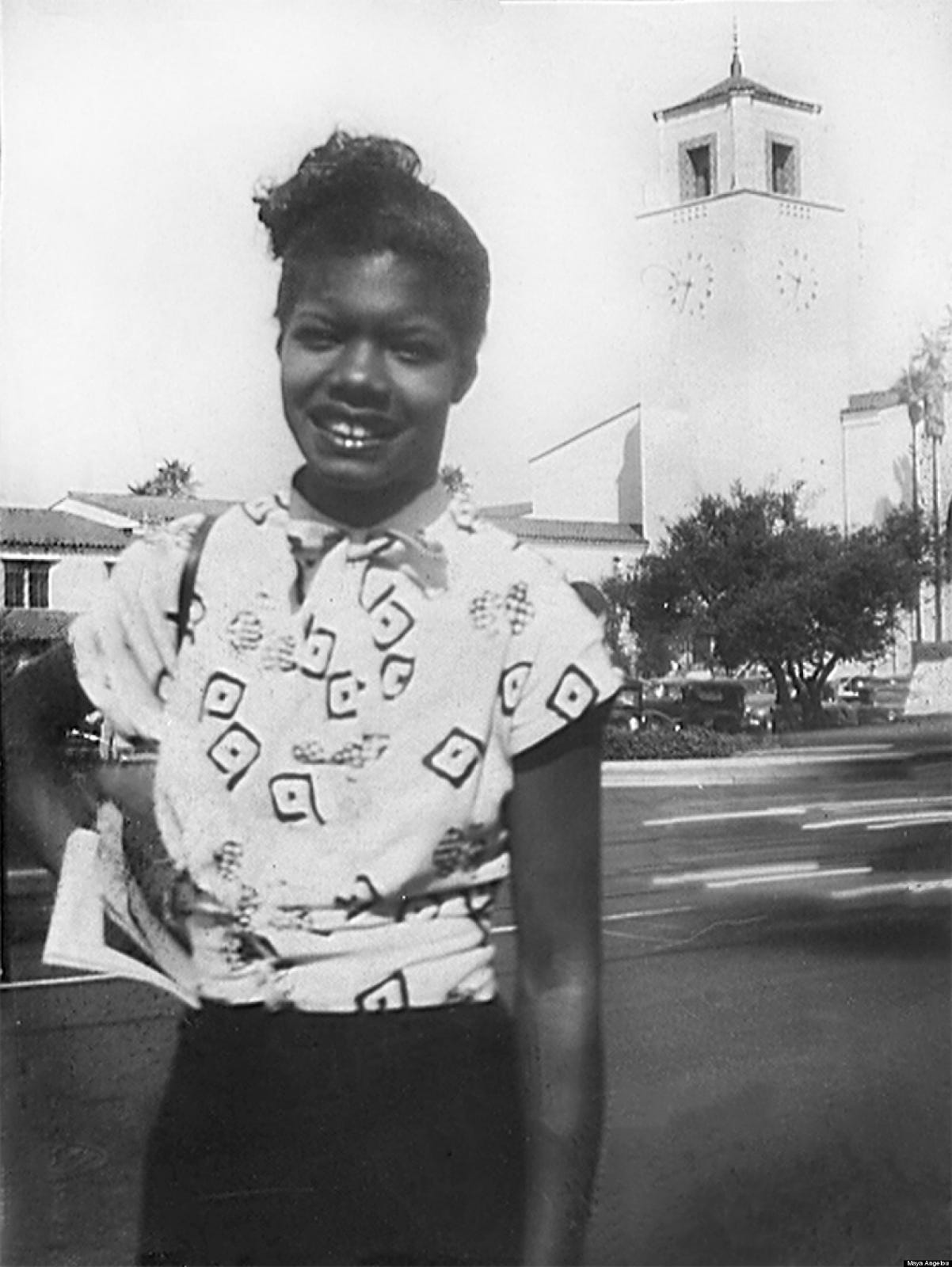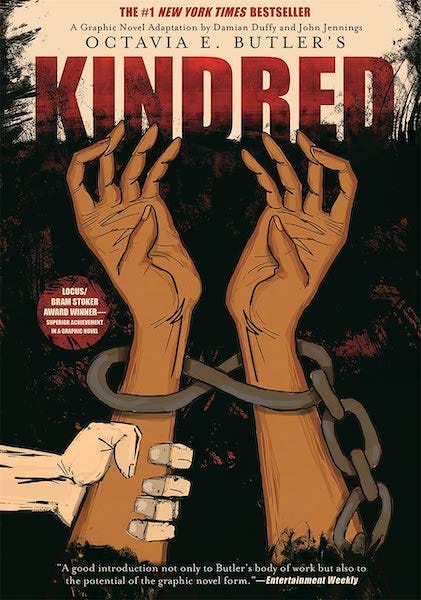📚 What to Read Next (No. 213): Black History, Part Two
Happy Friday, readers!
Our household had quite a week, recovering from illness, seeing Hamilton in downtown Denver (just Jane and I—thanks, Mom!), and attending conferences for our Kindergartener. So it’s been a slow-ish week or two of reading, but I managed to finish an all-time American classic and got a good start on a book I’ve read twice already . . .
. . . I was thrilled that our book club chose Octavia' Butler’s Kindred as our February selection. I took the opportunity this time around to give the graphic novel adaptation a shot (the “adaptation” piece means it’s not the exact text, but it’s close). It’s very good, though I wouldn’t recommend it unless you’ve already read the original. Seems like it’d be a little confusing otherwise. For today’s newsletter, I’ve included my review of Kindred from almost exactly two years ago.
As always, let me know what you’re reading and enjoying. I love to hear!
I Know Why the Caged Bird Sings by Maya Angelou
Published: 1968 | Pages: 283
“A light shade had been pulled down between the Black community and all things white, but one could see through it enough to develop a fear-admiration-contempt for the white ‘things’—white folks' cars and white glistening houses and their children and their women. But above all, their wealth that allowed them to waste was the most enviable.”
Angelou is often assigned in school . . . and often banned. (A topic that’s seeing more and more air time in recent weeks.) This classic of Black literature, though, was never part of my own educational syllabus, so this was my first time reading it.
In short, I Know Why the Caged Bird Sings blew me away — as it has been doing for generations of people. I’m not saying anything new here.
Published in 1968, when Angelou was about 40 years old, Caged Birds details the first 17 years of her life. Rather than being told in a linear fashion, as I expected, Angelou utilizes a series of vignettes that string together to form a picture, if not cohesive, of being a traumatized Black girl in mid-century America. (Content warning: Angelou was raped at the age of seven.)
Chapters that were especially memorable include: a fistfight in church, a tent revival, a stirring Joe Louis boxing match, a ghost story (which felt like something out of a Dickens novel), and her 8th grade graduation.
My buddy Kyle listened to this one on audio at the same that I read it and said: “Hearing Angelou read her story felt like sitting at her feet and being transported to the time and place of her story.” He said there were parts of the story that made him gasp, and, like me, Kyle “immediately wanted more.”
Though being a short book, it wasn’t quick-reading for me—in the best way. I was able to savor the poetic language, which was always simple and always beautiful (an incredibly hard combination).
If you’ve never read it, now’s the time. If you have, now’s the time to re-read it. There have been plenty of American classics that I’ve found to be overrated; this is not one of them.
Angelou famously wrote seven autobiographies over the course of her long writing career; I have them all on my shelf and I can’t wait to read more.
Kindred by Octavia Butler
Published: 1979 | Pages: 264
“I never realized how easily people could be trained to accept slavery.”
I didn’t read many of my assigned books in high school. But I did this one, and it really stuck out. I’ve remembered it and thought of it often in the last 15 years. The vividness of the characters and their experiences was quite possibly the first time I encountered the reality of slavery’s history in America (along with watching Roots).
I’ve long wanted to re-read it and figured Black History Month was a great time to do so.
This time around, I came away even more impressed with Butler’s writing and storytelling.
Dana, a black woman, lives in LA in 1976. Her and Kevin, her white husband, have just moved into a new apartment. But before they can really get settled, Dana feels a spell of dizziness and is whisked away to an antebellum Maryland slave plantation. She saves a young white boy, Rufus, from drowning, ends up in trouble herself, and is mysteriously back home again shortly thereafter.
She seems to have a celestial connection with this Rufus, the son of the plantation owner; whenever he’s in mortal danger (which happens a lot), Dana rushes through time to save him. While she ends up at the plantation for months on end, 1976 time barely passes at all. And sometimes Kevin is along for the ride too, making for an interesting dynamic; he can play slave owner while Dana is obviously forced to “act” the role of slave, which comes with the fear, punishment, and belittlement you’d expect.
Not only does Butler capture the reality of being a slave — both physically and mentally — but also the really interesting facet of being made into a slave after only having known a free existence.
Butler was a master of her craft. There’s just no doubt about it. Kindred was certainly a forerunner and influence to Colson Whitehead’s Underground Railroad, and it may be even better. It’s a book that should be part of more Great American Novels lists; you see it some, but not nearly enough.
Thanks so much for reading! Your time and inbox space are so appreciated.
-Jeremy




I'll second Kindred - I used to teach that book, and it's a really great read.